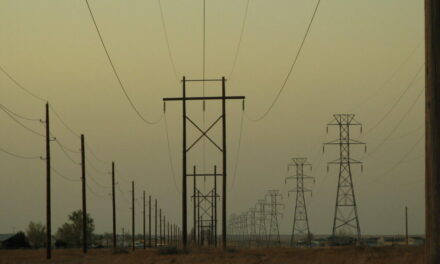We support our Publishers and Content Creators. You can view this story on their website by CLICKING HERE.
Hit shows on cable news networks like CBS have become exponentially “woke” in recent years, with even fan favorites such as “FBI” and its various spinoffs failing to maintain viewership, possibly due to the recent weaving of hour-long political lectures into storylines.
An activist agenda shows up repeatedly in the writing and casting of these shows, and many viewers switch to streaming services in search of better entertainment. But this past season, the new show “Tracker” was a hit, becoming television’s most-watched show in its first season and racking up 7 million live viewers for its finale in May.
The show’s plot line seems deceptively simple and somewhat reminiscent of older TV shows. Colter Shaw, the protagonist, calls himself a “rewardist.” Shaw invented the term to describe himself as a tracker, earning his living collecting reward money as he searches for missing people and things.
Each episode follows the gun-toting hero, played by Justin Hartley, answering the call of someone in need and finding the missing person or thing by the end of the episode. Shaw’s can-do attitude and one-man crusade against bad guys hints at the original “MacGyver” series and plot lines. Along with the repeated missing-person scenarios, there is an intriguing subplot as Shaw digs into haunting family secrets. There’s something enjoyable and familiar about the show, as it manages to combine up-to-date style with old-fashioned charm.
Besides its sense of nostalgia, “Tracker” has other elements that make it unusual for a CBS show. Instead of taking place in New York City or Chicago, Shaw travels through small towns, mostly on the West Coast and in the Midwest, pulling a vintage Airstream trailer behind his truck. Beautiful scenery and small-town aesthetics are highlighted in nearly every episode.
CBS also created a cast of characters different than some of the channel’s biggest hits. Parents are written in a sympathetic light, as are military veterans, small business owners, and other small-town characters who infrequently make appearances in other CBS shows. That’s not to say every character is realistically portrayed, “Tracker” is still a TV show, but there is a wider range of motivations and personalities on display than in typical CBS offerings.
“Tracker” also highlights a mature outlook on difficult relationships. Shaw’s father suffers from mental instability, which shapes the choices he makes and affects other characters. The mental instability ultimately causes rifts within the family and ignites an ongoing subplot. Shaw speaks honestly about his dysfunctional family and gives his father and mother the benefit of the doubt, refusing to speak poorly of them. In a society that increasingly encourages adult children to dishonor their parents, Shaw’s ability to acknowledge the issues and still forgive is a welcomed change.
The show depicts rocky relationships between Shaw and his siblings as well. Shaw decides to reconnect and rekindle a friendship with his estranged brother, expressing another forgiveness-oriented take on relationships.
The absence of intense sexual relationships among the main characters in “Tracker” is unusual given the prevalence of promiscuity in modern media. The pilot episode included a “love ‘em and leave ‘em” theme that was going to be part of the series but was dropped, apparently in favor of recognizing the harm that kind of relationship causes. With only the first season having been released, the second season could see a complete shift in these relationships, but the mature viewpoint regarding the family and romantic relationships is certainly a highlight of the episodes thus far.
What stands out clearly in the show is a commitment to good triumphing over evil. That message is sometimes difficult to find in other CBS shows, which struggle to define evil and increasingly make excuses for all kinds of lawless behavior. In “Tracker,” the good guys help the weak, don’t take bribes, try to do the right thing, and go home to their families. The bad guys are the ones involved in drugs, prostitution, human trafficking, and violence.
Shaw resolves conflict with words when possible but, reminiscent of old Westerns, resorts to physical confrontation when rescuing the weak. While this style of screenplay won’t earn the show any awards, it should guarantee a solid audience of viewers who know the difference between right and wrong and want to see the guy who stands for truth and justice win.
Of course, “Tracker” was not created to defy modern entertainment standards. The show’s cast represents differing sects of America (Shaw’s assistants and friends include a lesbian couple, a disabled black man, and an Asian woman) yet does not devolve into activism. Rather, it highlights the authenticity of a demographically diverse country. The people he assists cover a wide range of ethnicities and lifestyles, but those characteristics are simply shown on the screen, not woven into plot lines. There were no lengthy lectures on various DEI points and no sermons on gender roles or political party affiliation. The first season shows promise of focusing on the story, not an agenda.
“Tracker” is a surprising offering from CBS given its parallels to older television shows and traditional American values. The first season attracted enough viewers to guarantee a second season, and plenty of fans will be waiting to see if the next season offers the same charm and excitement.

 Conservative
Conservative  Search
Search Trending
Trending Current News
Current News 





